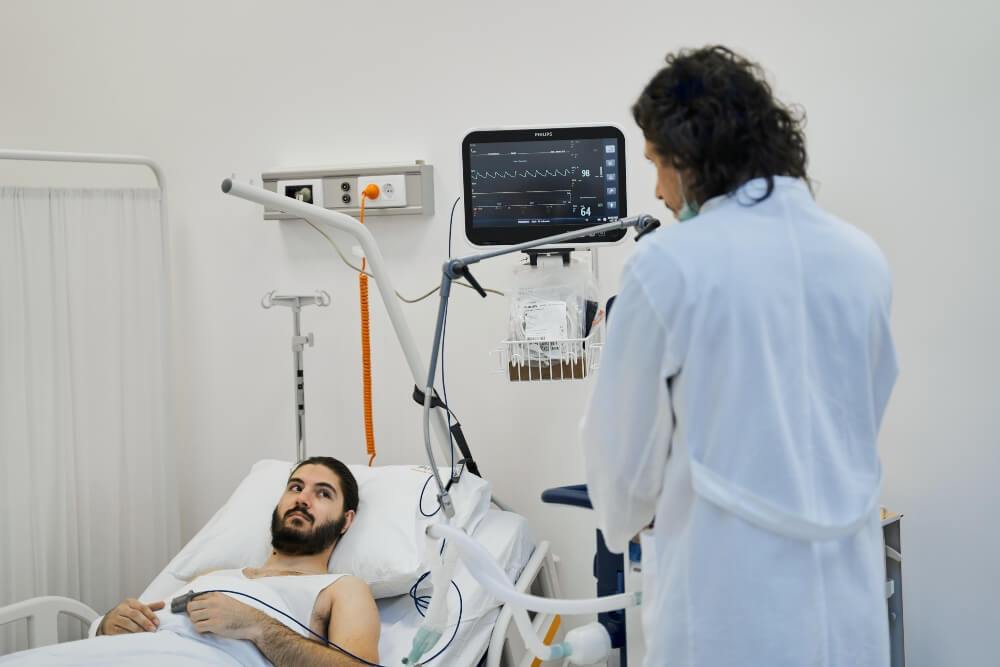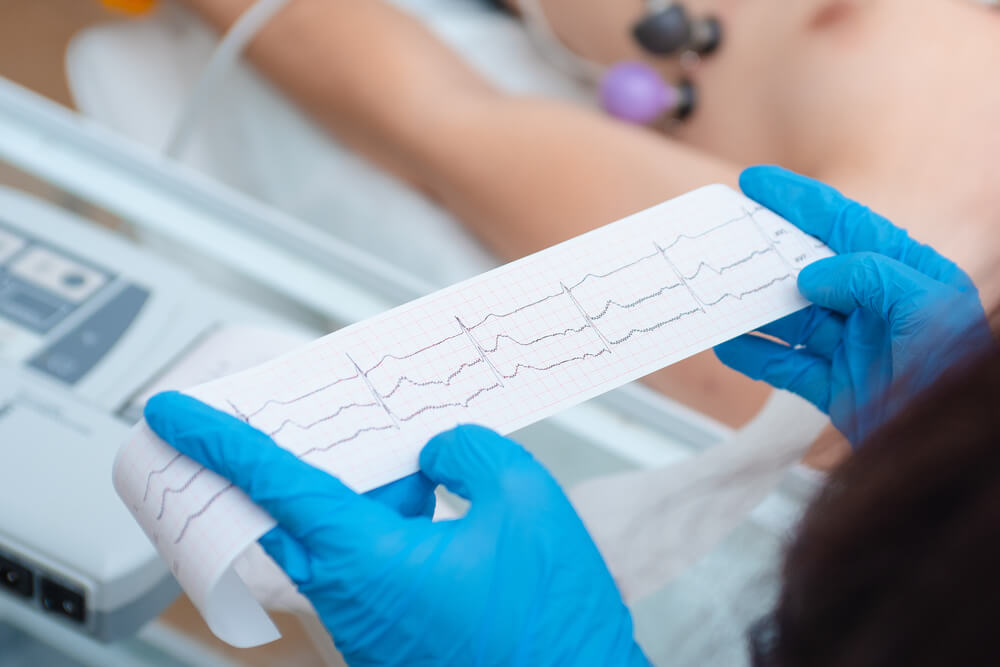A blood clot is often the main cause of the blockage of blood flow, which when formed in the arteries, prevents the transmission of oxygen to the heart and other vital organs. Myocardial infarction occurs due to atherosclerosis, or the buildup of plaque in the arteries – consisting of fat, calcium, and connective tissue. When the plaque ruptures, or its pieces break off, a clot forms in the blood vessels, weakening or completely blocking the flow of blood to the heart.
What do patients face after a heart attack?
After successful treatment of such a complex health problem, the patient is faced with no less a difficult process of recovery. First of all, due to the fact that the narrowing of blood vessels is still present, it can further increase over time. After surgery and the following recovery, patients often face a fear of another heart attack, as well as a range of questions regarding therapy, nutrition, physical activity, and returning to their previous daily routines.
Research shows that patients who have survived a heart attack expect additional expert advice and support to reduce the risk of another heart attack. Therefore, in the following text, we will focus on the most important recommendations that can help you take proper care of your cardiovascular health after experiencing a heart attack.
What rules should be followed after a heart attack?
After a heart attack, additional care and increased caution are necessary to prevent further damage to the already weakened heart muscle. It is crucial to diligently adhere to the prescribed pharmacotherapy. The appropriate therapy prevents the formation of new blood clots, regulates cholesterol and blood pressure levels, as well as heart rate. Taking medication should be accompanied by regular cardiology check-ups, during which the cardiologist will perform an ultrasound and ECG of the heart.
A decisive factor in recovery after a heart attack is changing harmful lifestyle habits that have caused serious cardiovascular problems. It is necessary to quit smoking, reduce excess body weight through a reduction in calorie intake, especially animal fats, and gradually introduce physical activity in accordance with the recommendations of the cardiologist. Physical activity has a beneficial effect on reducing fat deposits, stabilizing cholesterol levels in the blood, and reducing the tendency to develop blood clots.

Physical activity has a positive effect on the patient’s mental state. In addition to advice on reducing stress factors to which the patient is exposed, adopting habits for releasing accumulated stress through moderate physical activity such as walking in nature is suggested. Physical activity should not cause excessive fatigue and should not be applied in conditions of extreme temperatures that further exhaust the cardiovascular system.
If the patient’s job requires physical work, it is necessary to examine the patient’s ability to perform work activities using stress tests. Patients whose jobs do not require increased physical exertion can return to work within two weeks to a month after suffering a heart attack.
Regular check-up at Pulse Cardiology Center
In addition to lifestyle changes, patients are advised to regularly measure their blood pressure at home and to undergo ambulatory blood pressure monitoring, considering that hypertension promotes atherosclerosis and increases the risk of a new heart attack.
Moreover, through regular laboratory analyses, patients should monitor their cholesterol and triglyceride levels in the blood, which, if elevated, are key factors in the development of atherosclerosis. Adequate heart care requires timely and accurate diagnostic that can be performed at Pulse Cardiology Center in Block A of New Belgrade.
A quality life and return to previous activities after a heart attack are possible. Recovery requires the assistance of top cardiologists at Pulse Cardiology Center, who will create the most appropriate therapeutic approach for you, as well as the active engagement of the patient in following the doctors’ advice.





